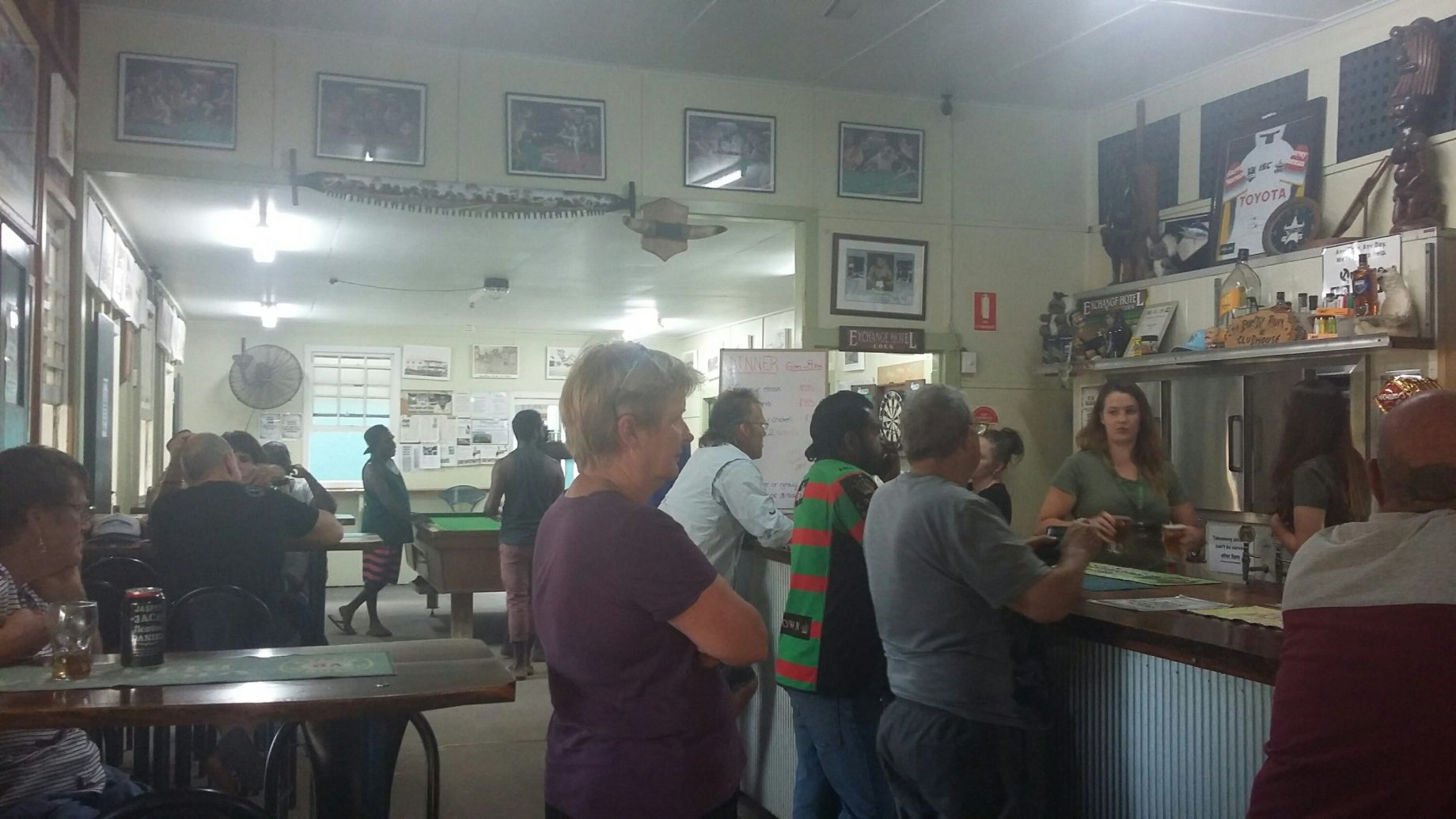We have left our campsite beside the North Kennedy River and returned to the real world – of sorts – today. Our journey started with a short drive (about 2 kms) along a single lane track, back to the entrance to the campsites off the main track through Lakefield National Park. We turned right and set off for a Musgrave, one of the original telegraph stations on the overland telegraph network linking Australia with countries overseas.
The journey to Musgrave was initially on a badly corrugated gravel track that shook everything violently at times, with billowing dust leaving a trail that hung in the still morning air. Patches of bull dust created even bigger clouds of dust in our wake as we bounced along across the corrugations. A few dry river crossings were negotiated and a number of lagoons were passed before leaving the National Park and entering cattle country.
Warning signs advised that we were approaching roadworks and the track conditions improved almost immediately. The graders had been through and water tankers were settling the dust. Compactors were compressing the surface to a near-sealed finish, where driving became easier.
The first sign of civilisation appeared, with road signs advising Coen was to the right and Laura was to the left. We arrived at Musgrave; with fuel pumps, a café, a restored telegraph station with alfresco seating below, an accommodation block, toilets and a gravel runway running parallel to the road to Coen. Four local police officers were meeting over bacon and egg toasted sandwiches with BBQ sauce (and a bottle of Coke each), while other travellers sat around and enjoyed a burger or coffee or both.
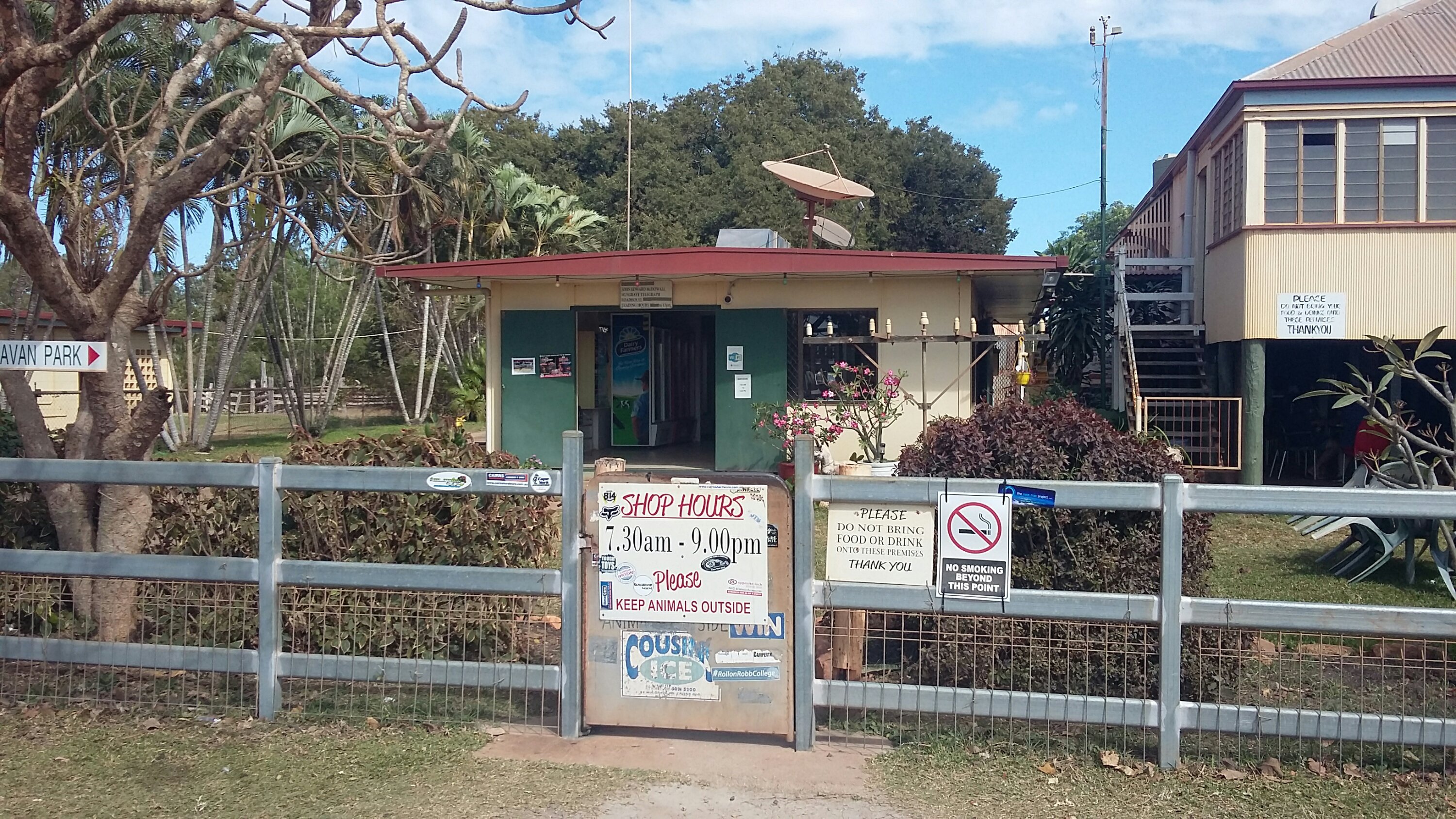
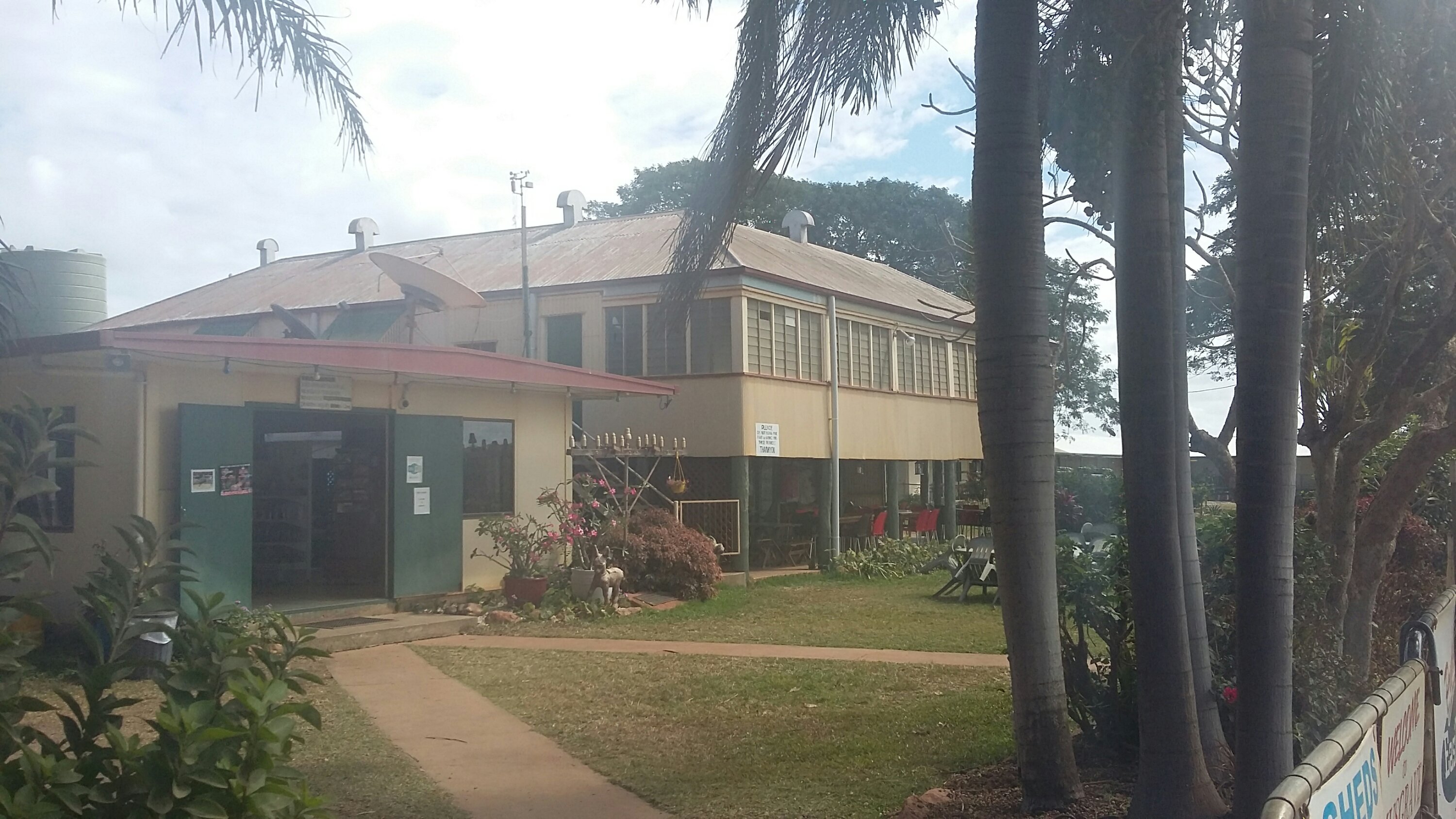

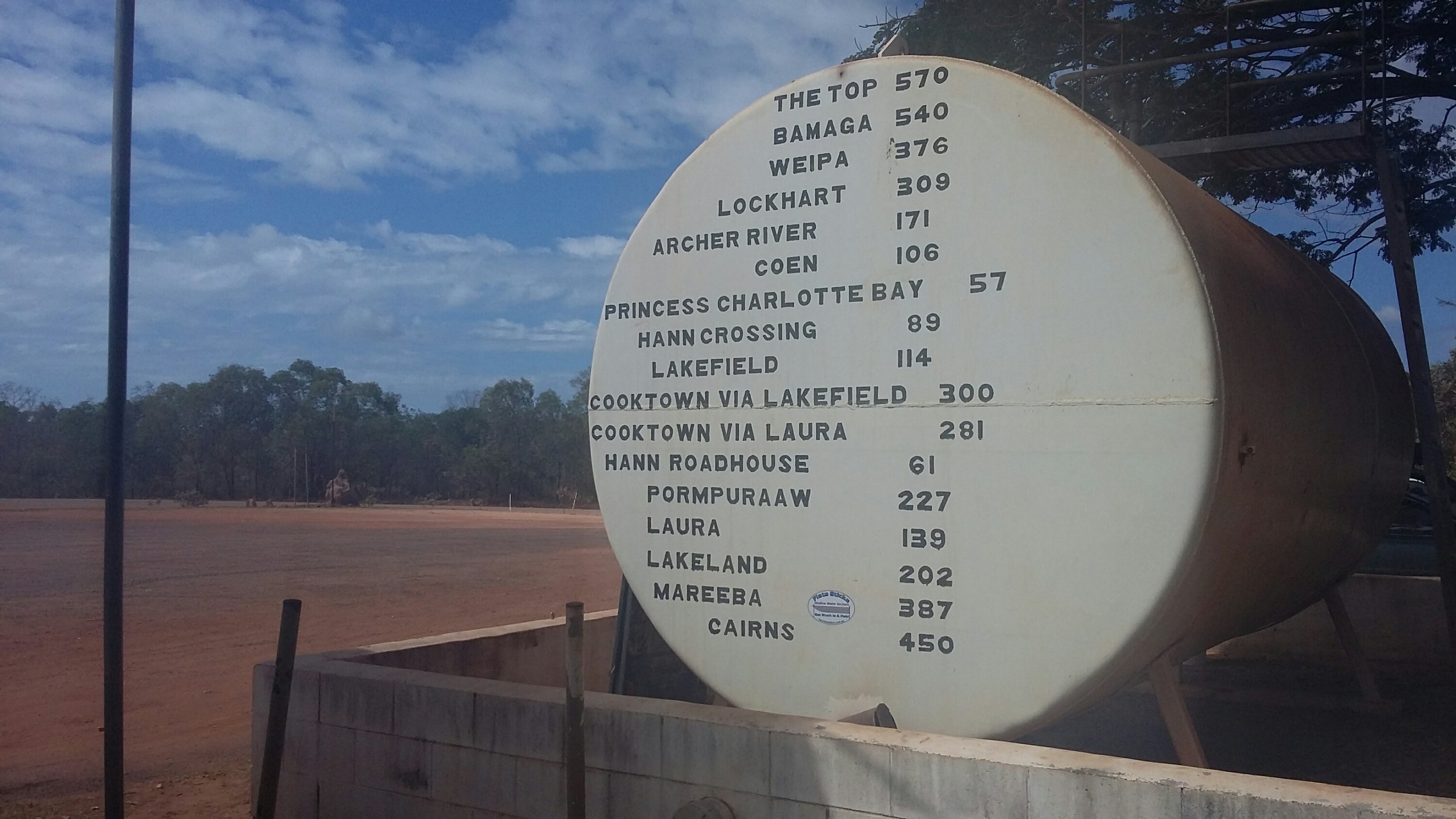
The old Queenslander-style telegraph station had the ground level area beneath the building concreted, with tables and chairs set up for customers. The internal walls were covered with a mix of local history, ads for places to stay and services available further north, positions vacant, local news, notices and general tourist information. There was a table displaying the preserved remains of some of the more inhospitable insects and reptiles found in these parts, possibly so you had a better chance of identifying what may have just bitten you when stepping out of your tent in a day or two.
A light aircraft landed as we departed Musgrave, scattering the cattle that were grazing along the side of the rough gravel strip. The Peninsula Development Road north to Coen was another rough, dusty road – but now with more traffic than we have experienced for days. With 108 kms to go, we were hoping that at some point the conditions might improve and to our good fortune they did. Roadworks about 60 kms into the journey gave way to a modern, well-sealed two lane road for the last 20 km.
Coen was soon upon us, and we stopped in front of the Sexchange Hotel (so named because some smart person climbed the roof of the hotel ages ago and added an “S” to the originally-named Exchange Hotel; it has stayed there ever since). The hotel runs a campground out back with powered sites – we were after one in order to recharge everything before we head bush again. Once checked in, we selected a preferred spot in the shade of old mango trees and set up camp before heading back to the Main Street and checking out the sights.
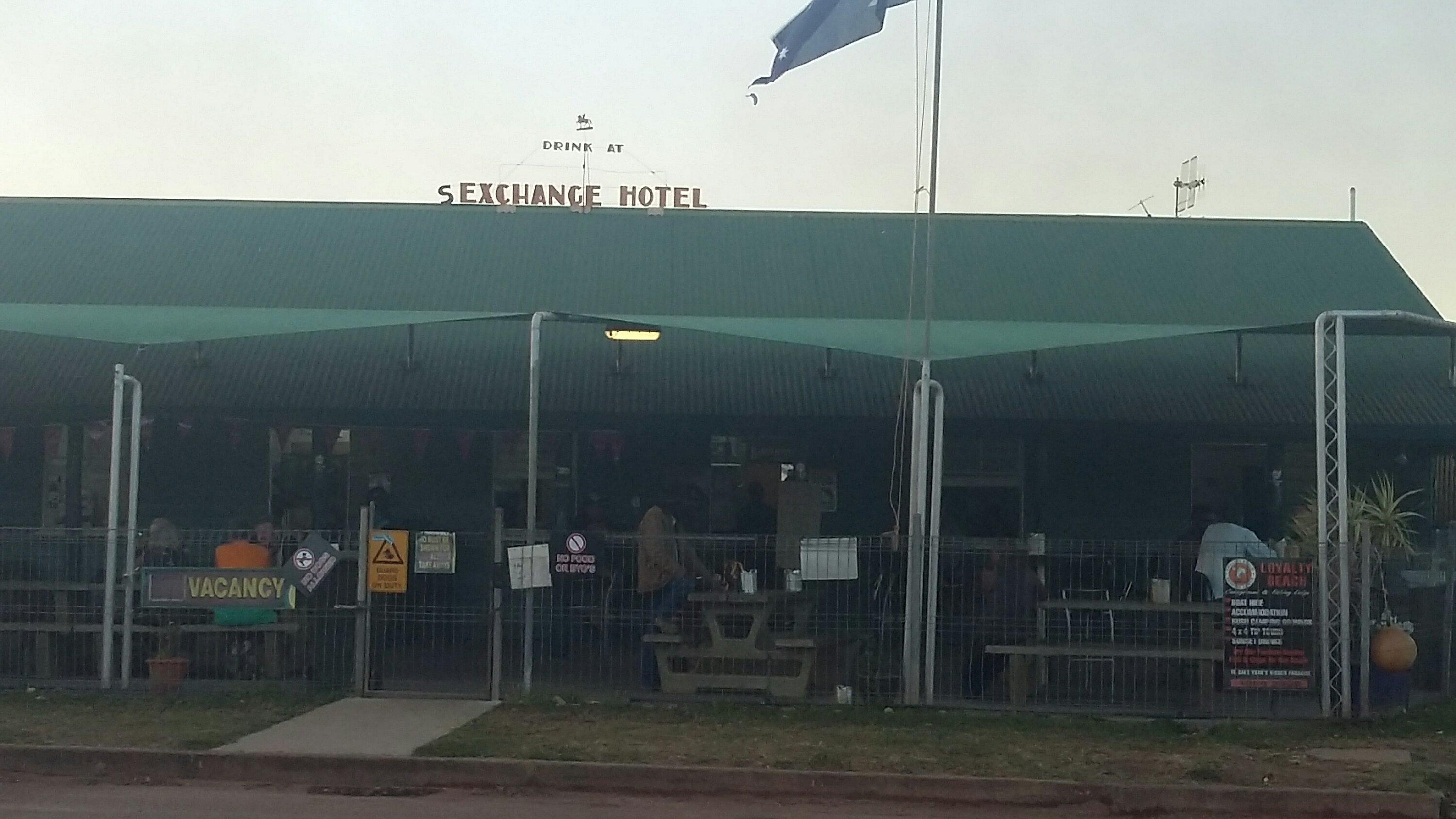
There is an old heritage house / museum opposite the campgrounds that explained how Coen was founded on the back of gold being discovered and mined in this region from the late 1880s. Photos from those times suggested it was a really hard life in this remote part of the country with its harsh climate. Cyclones had caused all manner of destruction over the years and yet the town has survived. Today it has a population in excess of 400, with over 80% being of indigenous heritage.
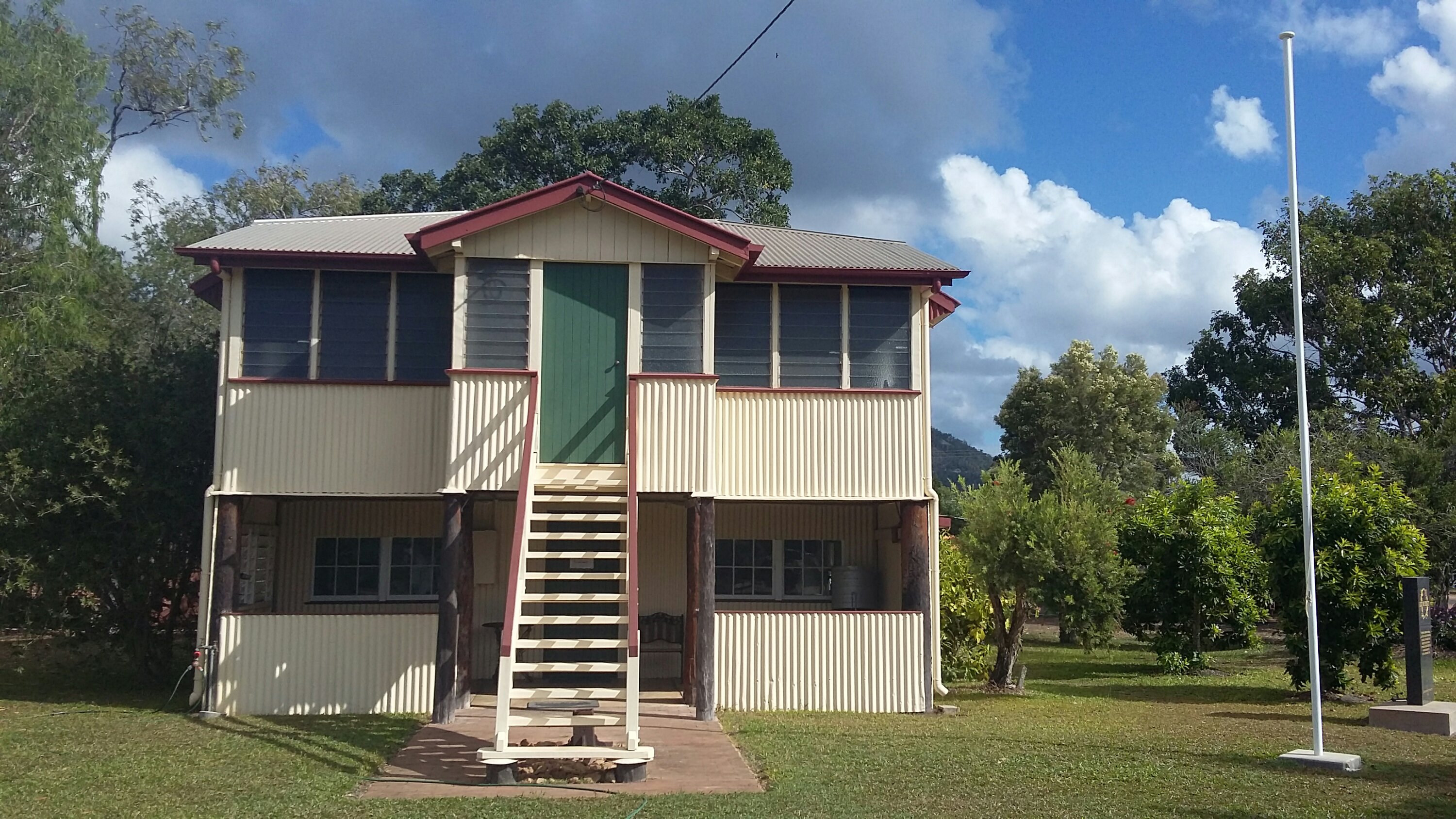
We visited the general store and post office where supplies were topped up and postcards set to the grandchildren back in Melbourne. Calls to family and friends followed, emails were checked and blog entries posted. We also took advantage of the showers before setting off up the steep hill to the Sexchange Hotel for a drink, a meal and to mingle with the locals. Linda noted that the culture and people in this part of the country are so removed from our typical Melbourne experience that we could be in another country.
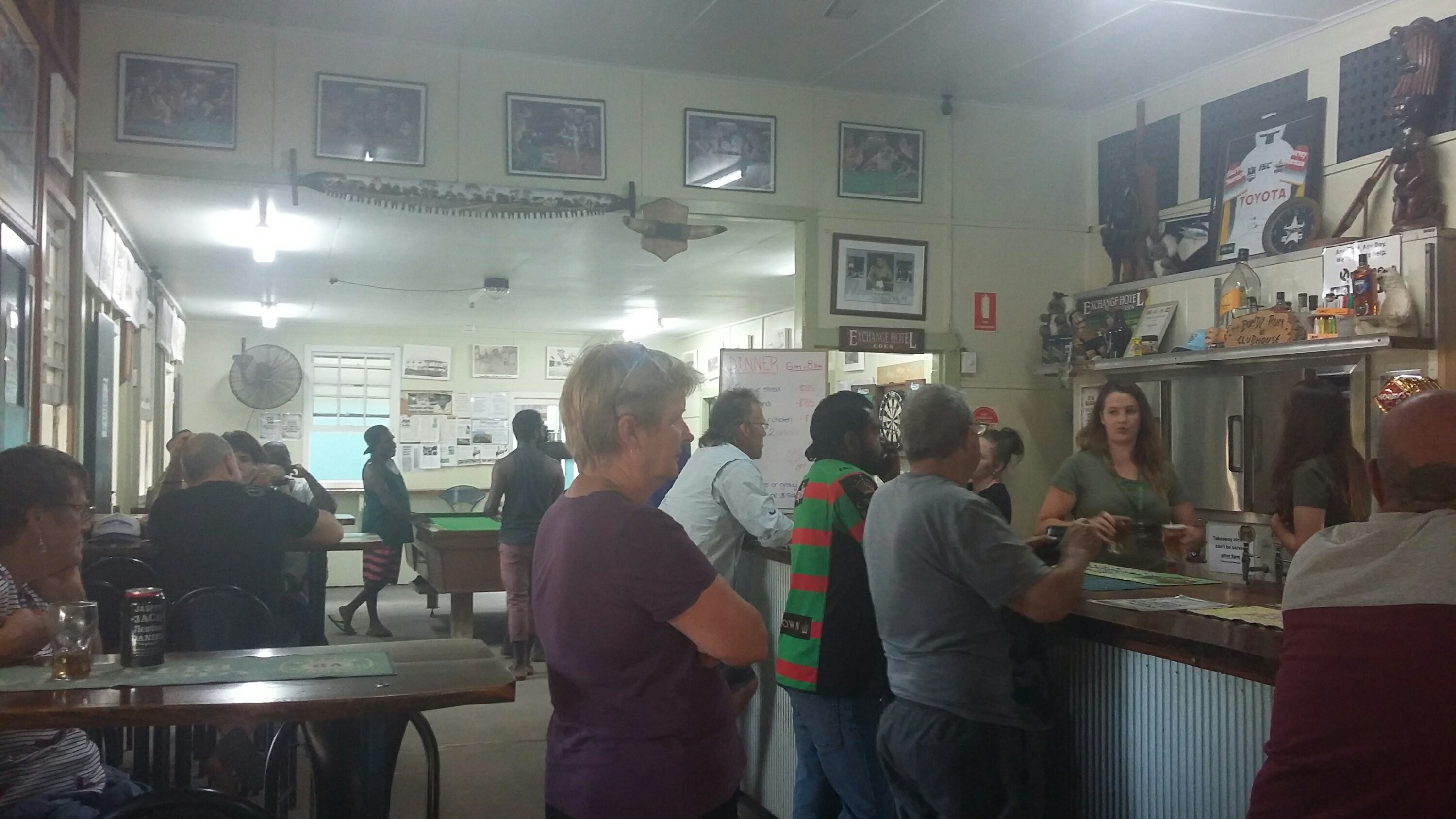
Dinner and drinks were ordered at the bar as we settled into people watching. Travellers were scattered amongst the locals, with Barry (the manager / owner) keeping an eye over things. One unruly customer was asked to move on after telling passing tourists to “f” off and get off his land. This was a view not shared quite so strongly and vocally by those he was with; he left quietly when Barry intervened. Apparently he was from an east coast community about 150 kms away.
The campground has filled since our arrival and small campfires are dotted throughout. The sound of conversations are coming from multiple directions as the darkness descends – something we did not experience on previous nights in Lakefield National Park.
